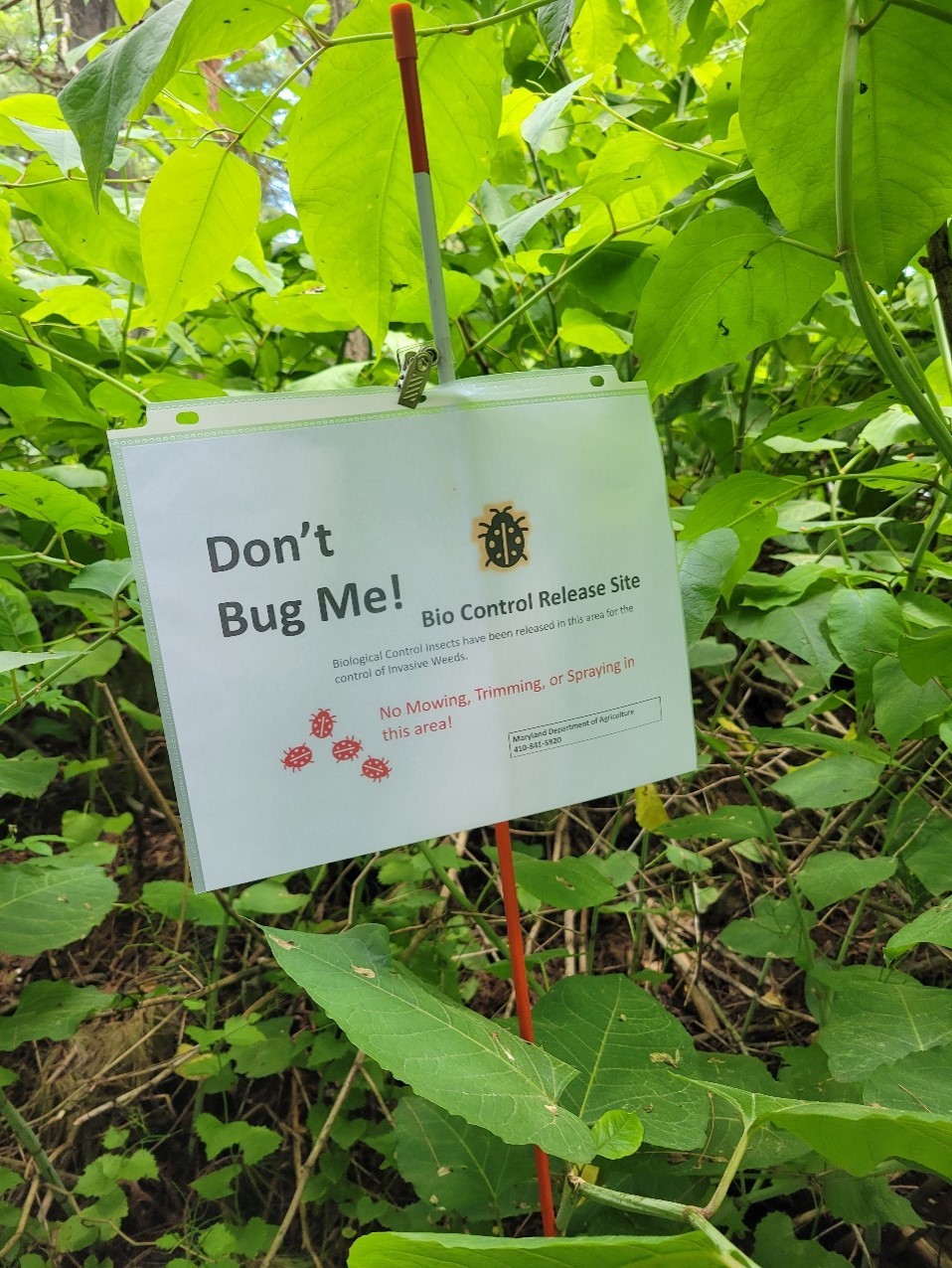
The Maryland Department of Agriculture, Plant Protection and Weed Management program has reared and released biocontrol agents for over 30 years. Targeting noxious weeds, agricultural pests and invasive species throughout Maryland. The program has been funded by State and Federal partners for decades. A list of past and present partners and funders includes: Our federal partners- Animal Plant Health Inspection Service, Plant Protection and Quarantine (APHIS, PPQ), United States Department of Agriculture (USDA), United States Department of Agriculture Forest Service (USFS), National Park Service (NPS); State partners include- Maryland Department of Transportation (MDOT/SHA), Maryland National Capitol Parks and Planning Commission (MNCPPC), Phillip Alampi Laboratory New Jersey Department Of Agriculture, The University of Delaware (UDEL), University of Maryland College Park (UMD), and various local landowners; from businesses and non-profits, including The Nature Conservancy (TNC), to Maryland citizens and Maryland county governments including currently Baltimore County and Anne Arundel.
Recently established biocontrol agents: the Mile-a-Minute Weevil (Rhinoncomimus latipes), Purple Loosestrife Beetles (Galerucella spp.), and Emerald Ash Borer parasitoids including the larval parasitoids Spathius galinae and Tetrastichus planipennisi. For an historic account of MDA biocontrol pdf.
Once established classical biocontrol insect agents work year-round to decrease the populations of unwanted pest plants and insects on the Maryland landscape. This, in turn, lowers the cost of roadside, agricultural and conservation management of pests and decreases the use and impact of herbicides and pesticides. It's important to note that Maryland would not have biocontrol agents if not for the extensive and expert research performed within federal agencies and land grant universities with access to international colleagues.
Currently the biocontrol program in Maryland is focused on rearing and releasing the knotweed psyllid Aphalara itadori on a limited number of sites in Maryland in an effort to establish the psyllid in the landscape. For the past three years the Kyushu strain of psyllid has been released on sites in Maryland. A new strain, Murakami, is being reared and released in 2025. Unlike the Kyushu strain which has been lab reared for over a decade, Murakami has been recently field collected from Japan. The spring season for 2025 has shown promise with recovery of reproductive Kyushu psyllid from last year's releases in Baltimore County.
In 2024 the Annapolis facility, consisting of a biocontrol lab and a greenhouse, produced 16,782 Kyushu knotweed psyllid and released 8,349. We are currently releasing both the Kyushu strain and the Murakami strain of knotweed psyllid in Maryland.